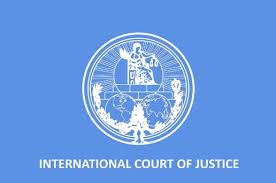Auto Limitation Theory in International Law
Auto Limitation Theory in International Law
1. Meaning
The Auto Limitation Theory refers to the idea that states, by virtue of being members of the international community, voluntarily limit their sovereign rights and powers in certain respects to coexist peacefully and maintain order.
It is the concept that states impose limits on their own freedom of action in international affairs, usually through treaties, customs, or acceptance of international norms.
Essentially, it is about self-imposed restrictions that states accept as a condition of living in a society of nations.
2. Origin and Development
The theory arises from the evolution of sovereignty and the development of international law.
Traditionally, states were considered absolute sovereigns with unlimited freedom.
Over time, the need for order, cooperation, and predictability in international relations led states to accept certain limitations voluntarily.
This idea is linked with the social contract theory on a global scale: states agree to restrain some actions to secure benefits like peace and stability.
3. Key Features
Voluntary: States themselves agree to limit their powers; these limits are not externally imposed.
Reciprocal: Limitations are often mutual among states, creating a system of obligations and rights.
Legal Basis: Limits are expressed in treaties, customary international law, or general principles.
Ensures Order: Helps prevent chaos from unlimited state actions, especially in areas like use of force, territorial sovereignty, and diplomatic relations.
4. Examples of Auto Limitation
Sovereignty and Non-Intervention: States agree not to interfere in the internal affairs of other states.
Use of Force: The UN Charter restricts states from using force except in self-defense or with Security Council authorization.
Diplomatic Immunity: States accept limitations on jurisdiction over foreign diplomats.
Treaty Obligations: By signing treaties, states accept limits on freedom of action (e.g., arms control treaties).
5. Significance in International Law
The theory explains how international law can bind sovereign states without a central enforcement authority.
It demonstrates that state sovereignty is not absolute but conditioned by the consent to rules and norms.
Facilitates cooperation, peace, and predictability in international relations.
6. Criticism
Some argue that the theory overemphasizes voluntary consent and ignores power politics or coercion behind treaties and norms.
Enforcement and compliance rely heavily on political will rather than automatic limitation.
7. Summary
| Aspect | Explanation |
|---|---|
| Definition | States voluntarily limit their sovereign rights |
| Nature | Self-imposed, reciprocal limitations |
| Legal Basis | Treaties, customs, principles |
| Purpose | Maintain order, peace, and cooperation |
| Examples | Non-intervention, use of force restrictions, diplomatic immunity |












comments